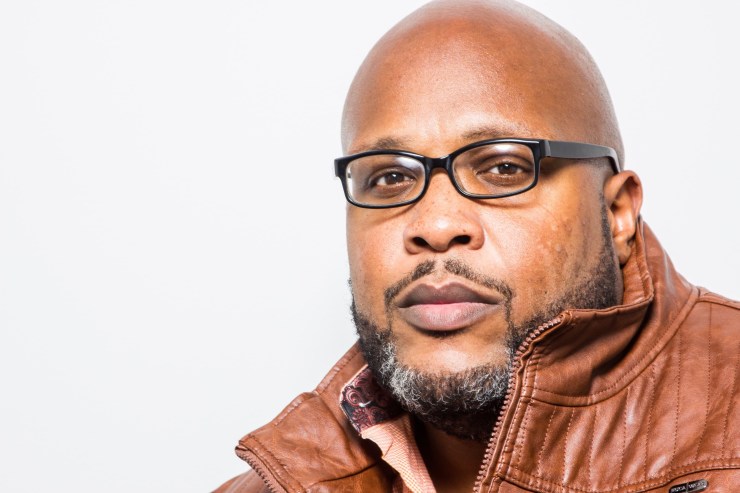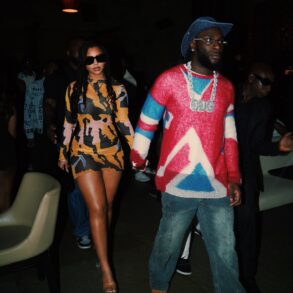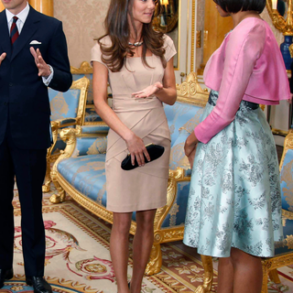Hip-hop all started — as the story goes — with DJ Kool Herc, spinning records at a party in the Bronx in New York on August 11, 1973.
Today, hip-hop is a multi-billion-dollar global phenomenon. Its artists are some of the world’s most popular entrepreneurs. They have fashion lines, alcohol brands and endorsement deals.
But that hasn’t always been the case for hip-hop’s musical talent.
Richard Simpson, better known as Chubb Rock, came up in the New York hip-hop scene in the 1980s. At the start of his career, he said that he had no idea how to break into the recording business. Instead, he started to create and produce music on his own.
“There was a place here in Long Island City that pressed records,” Chubb Rock said backstage at a hip-hop 50th anniversary event in Queens. “I remember buying — I think it was two boxes of records — and giving them to DJs. And hoping for the best.”

Chubb Rock went on to nab a record contract at 17 years old. Hits like “Treat ‘Em Right” and “Just The Two Of Us” soon followed.
With the money from his first deal, his mom advised him to invest some of it — in a taxi business.
“And that’s really the business that helped us out because we went from that to opening a bar,” Chubb Rock said.
Early hip-hop pioneers, like Chubb Rock, may not have had a flashy headphone company like Dr. Dre, which later sold to Apple, or their own cognac brand like 50 Cent. But they knew a lot about salesmanship.
Writer and NYU professor Dan Charnas said those early Black artists had to become entrepreneurs because when they started recording their music in the late 1970s and early 1980s they were boxed out of the mainstream.
“That’s what hip-hop had to do in order to even survive,” said Charnas.
Eventually, big labels did see how popular hip-hop was becoming. And after securing high-profile contracts, more musicians ramped up their business aspirations in the mid-1990s.
It’s the era when Charnas said, “instead of hip-hop being a place of a lot of endorsement deals, it’s hip-hop artists forming their own companies — their own clothing companies and basically doing their own thing.”
It wasn’t only hip-hop artists who saw business opportunities.
Designer April Walker grew up in Brooklyn where hip-hop was everywhere — blaring from car stereos, in clubs and on the street.
“And it became the sound and the voice of what we were feeling in our neighborhoods and what we could not see or express or hear on the news,” Walker said.
Yet, “we could not go into stores and buy anything that told our stories visually,” she recalled.

Walker wanted to capture hip-hop’s spirit through clothes and went on to start the independent streetwear label Walker Wear in 1990. Her sweatsuits and oversized jerseys were sought after by hip-hop stars like Tupac and Biggie Smalls.
Streetwear is now so popular that in 2019 its global market sales were an estimated $185 billion, according to the consulting business Strategy&, a division of PwC.
Although hip-hop is still booming in many ways, Chubb Rock said there’s a lot of work to be done to make the business more equitable, particularly for women musicians.
“Right now, queens of hip-hop are the ones dominating the genre,” he said, pointing out that they still aren’t profiting from brand spin-offs as much as men in the industry.
“So I hope that the younger women — they set it straight.”
There’s a lot happening in the world. Through it all, Marketplace is here for you.
You rely on Marketplace to break down the world’s events and tell you how it affects you in a fact-based, approachable way. We rely on your financial support to keep making that possible.
Your donation today powers the independent journalism that you rely on. For just $5/month, you can help sustain Marketplace so we can keep reporting on the things that matter to you.
This post was originally published on this site be sure to check out more of their content.








